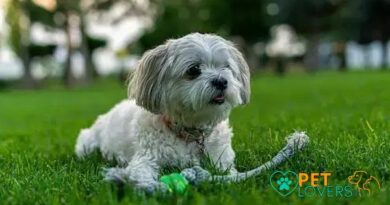What is companion dog responsibilities
Understanding Companion Dog Responsibilities
Companion dogs play a vital role in the lives of their owners, providing not only companionship but also emotional support and joy. Understanding the responsibilities that come with having a companion dog is essential for ensuring a harmonious relationship. These responsibilities encompass various aspects, including daily care, training, and socialization, which are crucial for the well-being of both the dog and the owner.
Daily Care and Maintenance
One of the primary responsibilities of a companion dog owner is daily care. This includes providing fresh water, nutritious food, and regular exercise. A well-balanced diet tailored to the dog’s age, size, and health needs is essential for maintaining their overall health. Additionally, regular grooming, including brushing and bathing, helps keep the dog’s coat clean and free of parasites, contributing to their comfort and hygiene.
Training and Obedience
Training is another critical responsibility that dog owners must undertake. Teaching basic commands such as sit, stay, and come not only enhances the dog’s behavior but also strengthens the bond between the dog and owner. Positive reinforcement techniques, such as treats and praise, are effective in encouraging good behavior. Consistent training sessions help ensure that the dog is well-behaved and can safely interact with others.
Socialization with Other Dogs and People
Socialization is a key aspect of a companion dog’s development. Exposing the dog to various environments, people, and other animals helps them become well-adjusted and confident. Regular visits to dog parks, participation in training classes, and playdates with other dogs can significantly improve a dog’s social skills. This responsibility not only benefits the dog but also enhances the owner’s experience by allowing for enjoyable outings.
Health and Veterinary Care
Maintaining a companion dog’s health is a fundamental responsibility. Regular veterinary check-ups, vaccinations, and preventive care are essential for detecting and addressing health issues early. Owners should also be aware of their dog’s specific health needs, including breed-specific conditions, and take proactive measures to ensure their well-being. This commitment to health care is crucial for a long and happy life together.
Providing Mental Stimulation
Companion dogs require mental stimulation to prevent boredom and destructive behavior. Engaging activities such as puzzle toys, obedience training, and interactive games can keep a dog’s mind sharp and engaged. Owners should incorporate a variety of activities into their dog’s routine to ensure they remain mentally stimulated and happy. This responsibility is vital for the overall happiness of the dog.
Creating a Safe Environment
Ensuring a safe living environment is another essential responsibility for companion dog owners. This includes dog-proofing the home by removing hazardous items and ensuring that the yard is secure. Providing a designated space for the dog to relax and feel safe can also contribute to their well-being. A safe environment allows the dog to explore and play without the risk of injury.
Understanding Behavioral Needs
Every dog has unique behavioral needs that must be understood and addressed by their owners. Recognizing signs of stress, anxiety, or discomfort is crucial for providing appropriate care. Owners should educate themselves about their dog’s breed characteristics and behavioral tendencies to better meet their needs. This understanding fosters a deeper connection and enhances the overall quality of life for both the dog and owner.
Commitment to Lifelong Care
Owning a companion dog is a long-term commitment that requires dedication and responsibility. From puppyhood through old age, dogs depend on their owners for care, love, and companionship. This commitment includes being prepared for the various stages of a dog’s life, including potential health issues and changes in behavior. Owners must be ready to adapt their care strategies as their dog ages, ensuring a fulfilling life together.
Building a Strong Bond
Ultimately, the responsibilities of a companion dog owner revolve around building a strong, trusting bond with their pet. This bond is cultivated through love, attention, and shared experiences. By fulfilling their responsibilities, owners can create a nurturing environment where their companion dog thrives, leading to a rewarding relationship that enriches both their lives.




